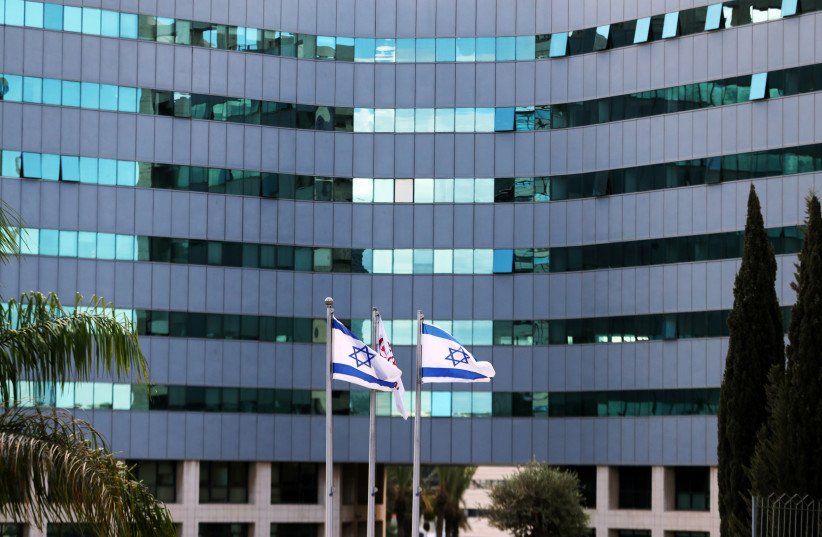Foreign and Israeli investments in Israel's high-tech sector have seen a dramatic 30% decline during the Swords of Iron war, according to a report released by the Israel Advanced Technology Industries (IATI) and the RISE Israel Research and Policy Institute.
This sharp drop, compared to the previous year, signals the war's significant impact on one of Israel's most vital industries. The report paints a complex picture of challenges and resilience in a sector that has traditionally been Israel’s engine of economic growth.
The decline was particularly evident in 2024 when the ten largest investments accounted for nearly 50% of total investments—compared to less than 25% in prior years. Additionally, mega-round investments made up 45% of all funding during the war, up from 30% the previous year.
76% of companies that raised significant funds had headquarters abroad, emphasizing a power shift beyond Israeli borders.
Despite the sector’s attempts to maintain stability, the war severely curtailed its ability to attract foreign capital, with many investors hesitant to engage with the Israeli market.

The report also highlights Israel's declining position in the global artificial intelligence race. The country dropped from 7th to 9th place in the Tortoise Media International AI Index, a marked decline from its 5th place ranking in 2021.
The war's prolonged nature has further complicated Israeli startups' ability to raise funds, with half of the companies that secured seed funding in 2022 struggling to move to Series A funding.
Karin Mayer Rubinstein, CEO and President of IATI emphasized the importance of high-tech as Israel's primary economic growth engine despite the challenges posed by a year of reserve enlistments and workforce shortages.
"The ongoing war has presented many challenges," Rubinstein said, "but Israeli high-tech continues to demonstrate stability, creativity, and an impressive ability to adapt." She praised the sector's flexibility and resilience, citing its ability to continue operations amid significant disruptions.
Defense high-tech: Growth under pressure
Despite the overall downturn, Israel's defense high-tech sector experienced a boost in demand during the war, driven by global tensions, such as the ongoing Russia-Ukraine conflict and growing competition between China and the US.
The report highlights that Israel's defense giants, including Elbit Systems, Rafael, and Israel Aerospace Industries (IAI), saw substantial growth, with Rafael reporting a 32% increase in sales during the war. However, investor reluctance to hold stocks in defense companies has led to a decline in their market value.
This uptick in defense demand has also presented opportunities for around 150 Israeli defense-tech startups, although many face challenges such as limited access to venture capital. The report suggests that the war has created new openings for these startups, particularly in developing technologies critical to national security.
Resilience in the periphery: High-tech in the north and south
The war has hit Israel's northern and southern regions especially hard. Technology companies in these border areas have shown remarkable resilience despite ongoing threats and security constraints.
Around 150 high-tech companies operate in these regions, representing less than 2% of the country’s high-tech firms.
A significant proportion of these companies specialize in Agri-FoodTech, with the sector constituting 25% of the regional industry compared to 5% nationwide.
While funding rounds in these regions have increased recently, the war has disrupted this growth. Nevertheless, companies in the periphery continue to contribute to the local economy through smaller-scale funding rounds.
The report stresses the importance of government intervention in strengthening sectors like Agri-FoodTech. It warns against the risks of establishing large, unsustainable, high-tech centers in the periphery that could waste valuable resources.

Recommendations for the future
The report includes several recommendations to revitalize Israel’s high-tech sector, starting with measures to encourage both foreign and Israeli investment. It calls for the government to launch targeted campaigns to reassure foreign investors, emphasizing the strengths of Israel’s high-tech industry in areas like life sciences and environmental innovation.
Economic policies should also be adapted to reduce investment risks and simplify tax regulations hindering foreign investment.
Another key recommendation is to encourage Israeli institutional investors to fill the gap left by foreign investors. The report also proposes a government-led initiative to reverse the brain drain by attracting Israeli professionals living abroad back to the country, with incentives such as research grants, tax benefits, and access to advanced infrastructure.
Looking forward, Uri Gabai, CEO of RISE Israel, warned of the need for decisive action. "The war has created a perfect storm that threatens the future of Israeli high-tech. If current trends continue, the sector could find itself in real danger, with serious consequences for the country’s economy."
He called on the government to take swift action, outlining responsible economic policies, preserving democratic values, and reducing Israel’s international isolation.
